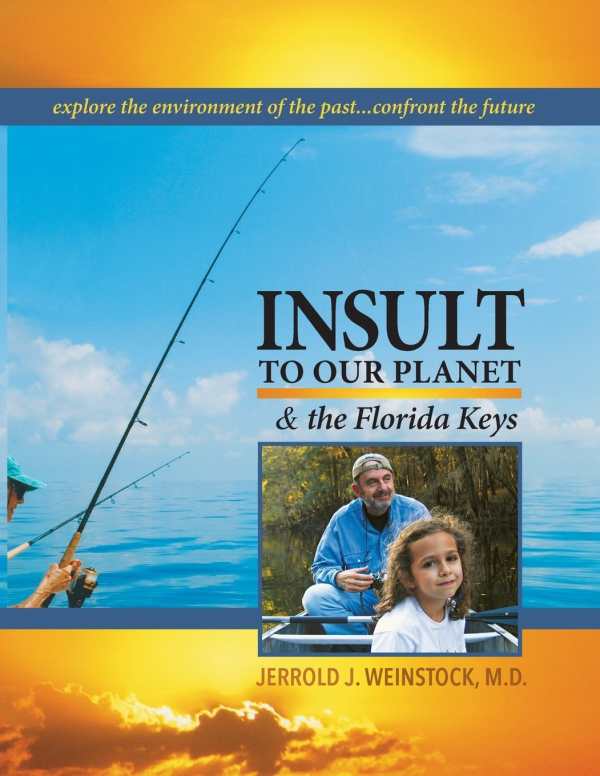
Insult to Our Planet & The Florida Keys
The power of Weinstock’s prose is undeniable, and his passion for the subject matter is infectious.
Jerrold J. Weinstock’s Insult to Our Planet & the Florida Keys is an impassioned call to action for environmental justice.
Outrage at what humans have done to our planet may be the single most compelling theme of this personal reflection from Weinstock, a retired psychiatrist who has lived in the Florida Keys since 1967. Using the Keys as a tragic example of “the relentless degradation of nature,” Weinstock offers his unforgiving assessment of the environmental impact of pollution, overfishing, tourism, and more.
This hefty work is as beautifully descriptive of the earth, sea, and sky as it is critical of human pillaging of natural resources. The prose is accompanied by numerous full-color photographs, some showing the startling before-and-after of the environmental impact of human beings.
Structurally, the book veers from topic to topic, including reminiscence, commentary about the environment, various stories about the author’s psychiatric practice, and expressions of Weinstock’s love of nature. An enthusiastic but responsible fisherman, Weinstock concentrates major portions of his book on fish and fishing, including many photographs of fish. The result is an eclectic mélange of anecdotes about patients and fishing adventures that wind into a spirited, often fervent discussion of environmental atrocities, including a scathing indictment of the political policies of those whom author views as anti-environmentalists.
The book feels fragmented and disjointed at times, with subjects assembled haphazardly into disparate chapters. Chapters are only loosely held together under the overarching banner of a call for environmental justice. Still, the power of Weinstock’s prose is undeniable, and his passion for the subject matter is infectious. He writes, for example, that “once an ecological biosphere is disrupted, once the balance is shredded, it is far too intricate and complex and interdependent to put back together, to reintegrate.” At times, there is a poetic, visually arresting, even philosophical quality to the writing:
We seek perhaps a certain harmony from nature to be transmitted to our inner selves, and sometimes that calming influence does permeate and enters understanding and (at least comprehension) of some sort. That which was covered subtly uncovers.
There is a great deal of personal angst here concerning the destruction of the environment. While the text can be repetitive, the book’s content on the whole is instructive, eye-opening, and meaningful to those who are concerned about the preservation of nature. The lengthy epilogue, which recaps the primary challenges Weinstock wrestles with throughout the book, is in itself a solid overview of problems that, if not solved, could result in environmental disaster. Accompanying photos and captioned commentary in this section have a particular poignancy.
The author concludes that “Awareness, understanding and insight of what we have lost in the natural world were the objectives of this book, and most significantly—how it affects us—meaning all of humanity.” In this impressive if imperfect work, Jerrold Weinstock gives every reader a great deal to think about.
Reviewed by
Barry Silverstein
Disclosure: This article is not an endorsement, but a review. The publisher of this book provided free copies of the book and paid a small fee to have their book reviewed by a professional reviewer. Foreword Reviews and Clarion Reviews make no guarantee that the publisher will receive a positive review. Foreword Magazine, Inc. is disclosing this in accordance with the Federal Trade Commission’s 16 CFR, Part 255.
